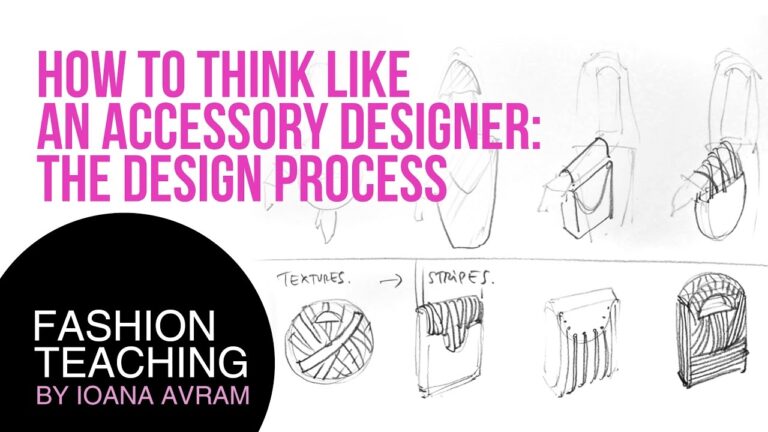Uncover User Insights: Job Description & Salary for User Researchers
User Researcher Job Description:
A User Researcher plays a crucial role in understanding the needs, preferences, and behaviors of users to improve the overall user experience of a product or service. They are responsible for conducting various research methods, such as interviews, surveys, usability testing, and data analysis, to gather insights and uncover user insights.
The User Researcher job description involves collaborating with cross-functional teams, including designers, product managers, and engineers, to translate user research findings into actionable recommendations. They help in creating user personas, user journey maps, and wireframes to guide the design and development process. Additionally, User Researchers may also conduct competitor analysis to stay updated with industry trends and best practices.
User Researcher Salary:
The salary of a User Researcher can vary based on several factors, including location, industry, experience level, and company size. On average, a User Researcher can earn between $70,000 to $120,000 per year. However, salaries can range from $50,000 for entry-level positions to over $150,000 for senior or lead User Researchers.
Factors that can influence salary include the demand for User Researchers in a particular market, the complexity of the projects they work on, and the level of expertise they bring to the table. Companies in tech hubs or industries with a strong focus on user experience tend to offer higher salaries for User Researchers.
Overall, the field of User Research offers promising career prospects, competitive salaries, and opportunities for growth and advancement. As businesses increasingly recognize the importance of understanding user needs, the demand for skilled User Researchers is expected to continue to rise.

User Researcher Job Description Template
User Researcher Job Description
A User Researcher is a professional who gathers and analyzes data on user behavior to inform the design and development of products and services. They play a crucial role in user-centered design processes, ensuring that products are intuitive, user-friendly, and meet the needs and expectations of the target audience.
Responsibilities:
– Conducting qualitative and quantitative research to understand user needs, preferences, and behaviors.
– Planning and executing user research studies, including usability testing, surveys, interviews, and focus groups.
– Analyzing research data and synthesizing findings into actionable insights.
– Collaborating with cross-functional teams, including designers, product managers, and engineers, to translate research findings into design recommendations.
– Creating user personas, journey maps, and other artifacts to communicate user insights and facilitate decision-making.
– Monitoring and evaluating product performance through ongoing user feedback and metrics analysis.
– Staying up-to-date with industry trends and best practices in user research methodologies.
Skills and Qualifications:
– Strong analytical and problem-solving skills.
– Excellent communication and interpersonal skills.
– Proficiency in conducting various research methodologies and tools.
– Knowledge of UX/UI design principles and practices.
– Familiarity with data analysis and visualization tools.
– Ability to work independently and manage multiple projects simultaneously.
– Attention to detail and a strong sense of empathy for users.
– A degree in psychology, human-computer interaction, or a related field is preferred.
– Experience in user research or a similar role is advantageous.
A User Researcher is a key player in creating user-centered experiences and driving the success of products and services. Their insights and recommendations help shape the direction of design and development efforts, ultimately leading to more engaging and satisfying user experiences.
User Researcher Responsibilities
User Researcher Requirements
How Much Does A User Researcher Make?
User Researcher Salary
| Job Level | Years of Experience | Average Salary (per year) |
|---|---|---|
| Entry Level | 0-2 years | $60,000 – $80,000 |
| Mid Level | 3-5 years | $80,000 – $100,000 |
| Senior Level | 6+ years | $100,000 – $150,000 |
A User Researcher’s salary can vary depending on their job level and years of experience. Entry-level User Researchers with 0-2 years of experience can expect to earn an average salary of $60,000 – $80,000 per year. Mid-level User Researchers with 3-5 years of experience can earn around $80,000 – $100,000 per year. Senior-level User Researchers with 6 or more years of experience can earn an average salary of $100,000 – $150,000 per year. These figures are approximate and can vary based on factors such as location and company size.
User Researcher Salaries by Country
Top Paying Countries for User Researcher
| Country | Average Salary (USD) |
|---|---|
| United States | 90,000 |
| Switzerland | 85,000 |
| Australia | 80,000 |
| United Kingdom | 75,000 |
| Canada | 70,000 |
User Researchers in the United States earn the highest average salary among the top paying countries, with an average of $90,000 per year. Switzerland follows closely with an average salary of $85,000, while Australia, United Kingdom, and Canada complete the list with average salaries of $80,000, $75,000, and $70,000 respectively. It is important to note that these figures are approximate and may vary depending on factors such as experience, qualifications, and company size. User Researchers play a crucial role in understanding user needs and preferences, conducting research studies, and providing valuable insights for product development and improvement.
A video on the topic User Researcher
Interview Questions for User Researcher
1. What is user research and why is it important in product development?
User research is the systematic process of understanding user needs, behaviors, and motivations through various qualitative and quantitative methods. It involves gathering insights from target users to inform the design and development of products or services. User research is important in product development as it helps in creating user-centered designs, improving usability, identifying pain points, and ensuring customer satisfaction.
2. What are the key methods or techniques used in user research?
Some key methods and techniques used in user research include interviews, surveys, usability testing, card sorting, focus groups, ethnographic studies, and analytics data analysis.
3. How do you determine the appropriate research method for a specific project?
Determining the appropriate research method for a specific project involves considering factors such as the research goals, target audience, available time and resources, and the stage of the product development process. By understanding these factors and the information needed, a user researcher can select the most suitable research method.
4. How do you recruit participants for user research studies?
Participants for user research studies can be recruited through various methods such as online recruiting platforms, social media, email lists, user panels, or by reaching out to specific target groups. It is important to ensure that the recruited participants are representative of the target audience to gather accurate insights.
5. How do you analyze and interpret the data collected during user research?
Data collected during user research can be analyzed and interpreted using qualitative and quantitative methods. Qualitative data can be analyzed through techniques like thematic analysis, content analysis, or affinity diagramming. Quantitative data can be analyzed using statistical methods to identify patterns, trends, and measure the significance of findings.
6. How do you effectively communicate research findings to stakeholders?
Effective communication of research findings to stakeholders involves presenting the data in a clear and concise manner. Visual aids such as charts, graphs, and infographics can be used to help stakeholders easily understand the insights. It is important to highlight key findings, support them with evidence, and provide recommendations for action.
7. How do you ensure the ethical considerations in user research?
Ensuring ethical considerations in user research involves obtaining informed consent from participants, protecting their privacy and confidentiality, and ensuring data security. It is important to conduct research with integrity, avoid any form of coercion or manipulation, and treat participants with respect and fairness.
8. How do you incorporate user research findings into the product design process?
User research findings can be incorporated into the product design process by involving the research team in design discussions, conducting collaborative workshops, creating user personas and journey maps, and conducting usability testing throughout the design iterations. The insights gained from user research should inform the decision-making process at every stage of product development.
9. How do you handle situations where user research findings conflict with stakeholders’ opinions?
Handling situations where user research findings conflict with stakeholders’ opinions requires effective communication and negotiation skills. It is important to present the research findings objectively, explain the rationale behind the findings, and highlight the potential impact on user experience and business goals. Finding common ground and involving stakeholders in the research process can help align their opinions with user insights.
10. How do you measure the success or impact of user research?
The success or impact of user research can be measured through various metrics such as improved user satisfaction scores, increased conversion rates, reduced user errors, decreased support requests, and positive feedback from users. It is important to define measurable goals and track relevant metrics to evaluate the effectiveness of user research in driving product improvements.






